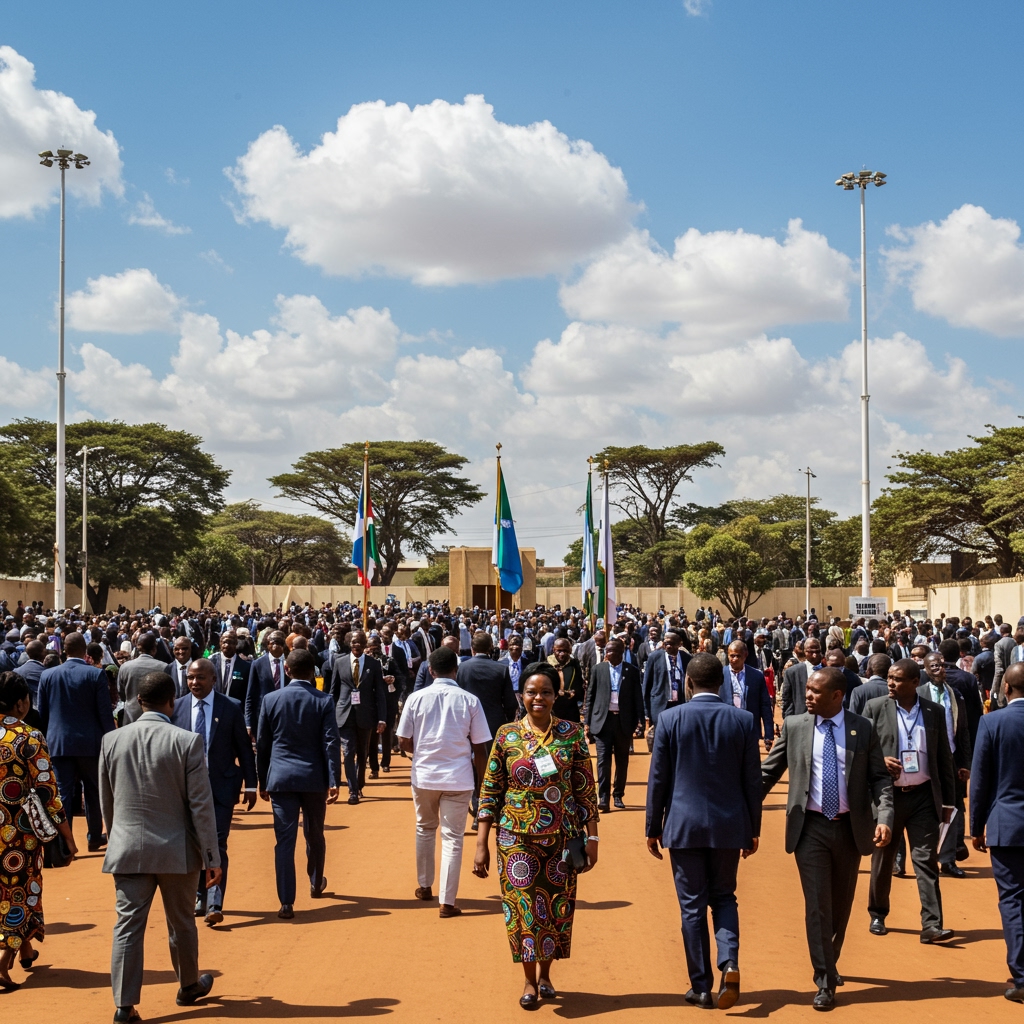Preparations for a pivotal global summit focused on climate change adaptation, the ‘Climate Resilience 2025’ event, are facing substantial delays as disagreements over financial contributions persist among participating nations. Originally slated to convene from March 15-18 in Nairobi, Kenya, the summit is a crucial platform intended to solidify funding mechanisms essential for climate adaptation projects in the world’s most vulnerable regions. Hosted by the United Nations Environment Programme (UNEP), the gathering carries the significant objective of advancing global efforts to build resilience against the escalating impacts of a changing climate.
The Heart of the Dispute: Adaptation Funding
The core purpose of the ‘Climate Resilience 2025’ summit is to finalize the financial architecture needed to support adaptation initiatives globally. A central proposal on the table is the establishment of a $50 billion Green Adaptation Fund. This proposed fund is envisioned as a critical resource to help developing countries implement projects ranging from building seawalls and developing drought-resistant crops to improving early warning systems for extreme weather events. Such measures are vital for nations least responsible for historical emissions but often most exposed to climate risks.
The current impasse stems from deep divisions over who should contribute how much to these global adaptation efforts. Developing nations have been vocal in their calls for significantly increased financial commitments from industrialized countries. Their position is underpinned by the principle of common but differentiated responsibilities, acknowledging the historical emissions largely originating from developed economies. They argue that current pledges fall far short of the estimated needs for adaptation, which, according to various UN reports, could run into hundreds of billions annually by the end of the decade.
Adding to the tension is the perceived shortfall in meeting previous financial promises. Developing countries frequently cite unmet pledges made in earlier international climate accords, including the 2023 Glasgow Compact. The Glasgow Compact, while a step forward in many areas, left many developing nations dissatisfied with the level of financial support committed for adaptation, particularly regarding the goal of doubling adaptation finance compared to 2019 levels by 2025. This historical context of unfulfilled commitments casts a long shadow over the current negotiations for the Green Adaptation Fund.
Urgent Diplomacy in Geneva
Recognizing the gravity of the situation and the potential ramifications of delaying or cancelling the summit, intensive discussions are currently underway to break the financial deadlock. These critical talks are taking place this week in Geneva, Switzerland. Leading these efforts is UNEP Executive Director Inger Andersen, who is spearheading diplomatic initiatives to find common ground among the diverse group of nations.
The Geneva discussions involve representatives from key blocs of countries, including major industrialized economies, emerging economies, and the most vulnerable developing nations. The goal is to bridge the gap between the demands of developing countries for greater financial burdens on historical emitters and the varying capacities and priorities of potential donor nations. Finding a mutually agreeable formula for contributions to the proposed $50 billion fund is paramount.
Threat to the March Timeline
The timing of these current negotiations is critical. The original dates for the summit in Nairobi, March 15-18, are fast approaching. Officials involved in the preparatory process have indicated that if a resolution to the funding dispute is not reached swiftly in the coming days or weeks, the March timeline will likely become unfeasible. Significant logistical and planning efforts are required to host a summit of this scale, and continued uncertainty over funding commitments makes proceeding with preparations increasingly difficult.
A delay would have significant consequences. It would push back crucial decisions on adaptation finance at a time when climate impacts are intensifying globally. It could also erode trust among participating nations, particularly between the developed and developing world, potentially complicating future climate negotiations.
Broader Context: The Adaptation Finance Gap
The challenges facing the ‘Climate Resilience 2025’ summit highlight a broader, persistent issue in international climate action: the significant gap in adaptation finance. While mitigation efforts (reducing emissions) often receive substantial attention and investment, funding for adaptation measures has consistently lagged behind. This disparity is particularly concerning for vulnerable communities that are already experiencing the brunt of climate change impacts, from sea-level rise and extreme heat to water scarcity and ecosystem collapse.
Finalizing mechanisms like the proposed Green Adaptation Fund is seen as essential to redress this imbalance and ensure that vulnerable nations have the resources needed to protect their populations, infrastructure, and ecosystems. The success, or failure, of the Geneva talks and the fate of the Nairobi summit will be a key indicator of the international community’s commitment to truly building climate resilience on a global scale. The coming days are critical for determining whether the world can overcome financial hurdles to meet the urgent challenge of adaptation.















